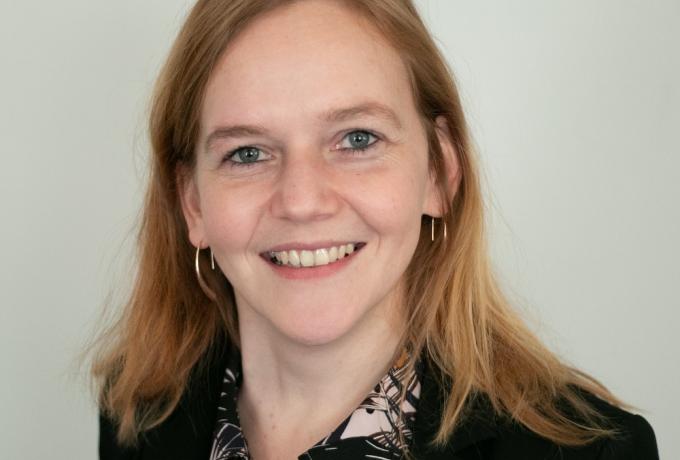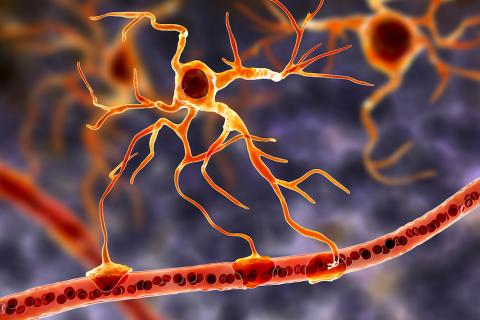The UK DRI and the British Heart Foundation (BHF) are thrilled to announce the appointment of Prof Susanne van Veluw, a new Group Leader at the BHF-UK DRI Centre for Vascular Dementia Research (CVDR). The £9M joint centre is the UK’s flagship investment in vascular dementia research, uniting leading researchers in the field.
Prof van Veluw is currently Associate Professor of Neurology at Massachusetts General Hospital and Harvard Medical School in Boston (USA), where her lab investigates the links between cerebral small vessel disease and neurodegeneration. Her research focuses on cerebral amyloid angiopathy (CAA), a condition in which amyloid beta accumulates within the walls of the blood vessels of the brain, impacting the structure and function of the small vessels.

Our team and I are thrilled to be joining such a strong and collaborative vascular neuroscience research community at the UK DRI and in Edinburgh more broadly. It’s a wonderful opportunity to come up with new ideas and complementary approaches to our questions, and to contribute to ongoing research with our expertise.
Prof Susanne van Veluw
CAA is one of the leading causes of haemorrhagic stroke (bleeding in the brain due to the rupture of a blood vessel), and a significant contributor to cognitive impairment and dementia. It’s estimated that about 80% of people with a clinical diagnosis of Alzheimer’s will have CAA in their brains.
Susanne’s Translational CAA Research Lab will relocate from Boston to Edinburgh to join the UK DRI from September 2025. The team will focus on understanding how disease progression occurs in CAA, to identify opportunities for early intervention and treatment.
Prof van Veluw explained:
“Much like any neurodegenerative condition, CAA is a long, slowly unfolding process that spans decades. At the very end stage, individuals may develop stroke-like symptoms, and if we can intervene to prevent recurring haemorrhages, that will be of tremendous clinical benefit. But there is also a lot happening before that stage, when people are largely pre-symptomatic, and we see reduced vascular reactivity and damage to the white matter starting to occur. Trying to understand those mechanisms may give us some clues as to how we can prevent further damage in the brain.”
Having completed a PhD at Utrecht University in the Netherlands, focused on small vessel disease, Prof van Veluw moved to Boston for her postdoctoral studies. There, she first worked with Prof Steven Greenberg, who pioneered research into CAA, before she set up her independent lab. Her research takes a multimodal translational approach to understand the mechanisms and sequence of events in CAA, starting with neuropathological and clinical observations and MRI scans from patients, and studying the underlying mechanisms in animal models of the condition. Prof van Veluw aims to understand the mechanisms of disease at a single vessel level, tracking processes over time to uncover new targets for treatment.
Prof van Veluw added:
“Our team and I are thrilled to be joining such a strong and collaborative vascular neuroscience research community at the UK DRI and in Edinburgh more broadly. It’s a wonderful opportunity to come up with new ideas and complementary approaches to our questions, and to contribute to ongoing research with our expertise. I’m also looking forward to help raise CAA awareness in the UK in partnership with the International CAA Association and local patient communities – I know there’s already some great work being done in this area, so we are excited to join those existing efforts to further our understanding of this debilitating disease.”
Prof David Attwell, CVDR Centre Director, said:
“It’s great to welcome Susanne van Veluw, and her outstanding expertise on CAA, to the Centre for Vascular Dementia Research. She will join a group of 7 other scientists studying diverse aspects of Vascular Dementia in this Centre, which will formally be launched this year. Investment by the British Heart Foundation and by the UK Dementia Research Institute in this Centre is aimed at developing an understanding of, and eventually therapies for, vascular dementia.”

